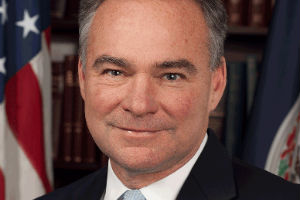
Sen. Tim Kaine has reintroduced legislation to tackle the lack of representation of rural students, underserved students, and students of color in the physician pipeline.
The Expanding Medical Education Act would provide grants to colleges and universities to establish or expand medical schools in underserved areas or at minority-serving institutions, including Historically Black Colleges and Universities. The legislation would encourage the recruitment, enrollment, and retention of students from disadvantaged backgrounds at the medical schools.
Virginia is home to 5 HBCUs: Hampton University in Hampton, Norfolk State University in Norfolk, Virginia State University in Petersburg, Virginia Union University in Richmond, and Virginia University of Lynchburg in Lynchburg.
Kaine is pushing to include this legislation in the Build Back Better bill.
The bill text can be found here.
What the bill would do
The Expanding Medical Education Act would authorize funding to provide grants through the Health Resources and Services Administration to colleges and universities to establish or expand allopathic (M.D. granting) or osteopathic (D.O. granting) medical schools in an area in which no other such school is based and is a medically underserved community or health professional shortage area OR at minority-serving institutions, including Historically Black Colleges and Universities.
Grants funded through this legislation would require reporting to Congress on associated outcomes and would be used for:
- Planning and construction of a new medical school or branch campus in an area where no other school is based.
- Activities to meet the accreditation criteria for a medical school.
- Hiring diverse faculty and other staff.
- Recruitment, enrollment, and retention of students, including those from disadvantaged backgrounds, underrepresented racial and ethnic minorities, students from rural and underserved areas, low-income students, and first generation college students.
- Supporting educational programs.
- Modernizing and expanding infrastructure.
- Other activities determined by the Secretary of Health and Human Services.
Support
“Even before the pandemic, underserved, rural, and minority communities faced too many barriers in accessing health care,” Kaine said. “This has only been exacerbated by nationwide physician shortages. One way we can address this issue is by diversifying and expanding our physician pipeline, as medical students of color and those from rural areas are more likely to practice in the communities they’re from. I’m proud to re-introduce this important legislation to help us get one step closer to ensuring communities across Virginia and the nation have access to the medical professionals they need.”
“The Expanding Medical Education Act is of significant importance as we find solutions to health disparities in the medical profession and in our underserved communities. Virginia Union University is committed to developing academic programs to train future physicians and health professionals who identify with the ailments that affect communities of color. This legislation would provide the financial resources to increase our programs and opportunities for better healthcare in our community,” said Dr. Hakim J. Lucas, president of Virginia Union University.
“The ongoing pandemic continues to show us that we must create new professional medical opportunities for students to become physicians in underserved areas and at our Historically Black Colleges and Universities and other minority serving institutions. We have been pleased to work with Senator Kaine and his colleagues on this important initiative to help increase the number of medical doctors who are eager to serve in our communities,” said Dr. Makola M. Abdullah, president of Virginia State University.
“COVID-19 has shined a bright light on the health disparities that continue to persist in America’s communities of color. Norfolk State University’s medical and health programs, such as Nursing, Allied Health, and DNIMAS, have a rich history of contributing to the advancement of healthcare in communities of color, in Hampton Roads, across the Commonwealth of Virginia, and the United States of America. Additionally, through our new Center for Minority Health Disparities and partnership through the ONE School of Public Health, Norfolk State University is poised to do more. Through the Expanding Medical Education Act, Norfolk State University will have the ability to help address these disparities and diversify the physician pipeline by providing the financial resources to increase the number of physicians that serve the communities of color that they come from through medical schools at Historically Black Colleges and Universities and other institutions of higher education that educate underserved and rural areas. Norfolk State University supports this legislation and thanks Senator Kaine for his ongoing commitment to equity in education and healthcare,” said Dr. Javaune Adams-Gaston, president of Norfolk State University.










